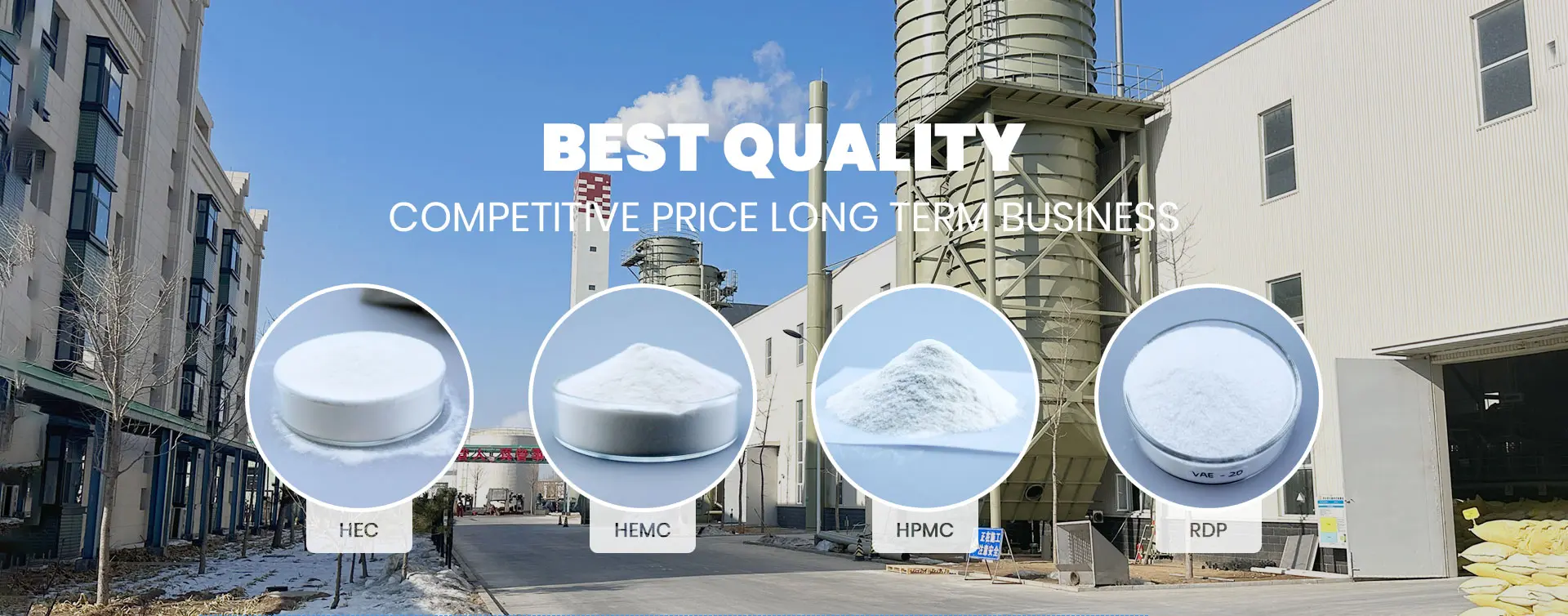
Nov . 10, 2024 08:04 Back to list
Exploring Advanced Techniques in HPMC for Enhanced Pharmaceutical Applications
HPMC A Versatile Polymer for Various Applications
Hydroxypropyl Methylcellulose (HPMC) is a non-ionic, water-soluble polymer derived from cellulose, a natural polymer obtained from the cell walls of plants. The unique properties of HPMC make it an incredibly versatile compound used across a multitude of industries, including pharmaceuticals, food, cosmetics, and construction. This article provides an overview of HPMC, its properties, and its applications, illustrating its significance in modern technology and manufacturing processes.
Properties of HPMC
HPMC showcases a combination of unique characteristics that contribute to its widespread use. One of its most notable features is its water solubility. This property allows it to easily dissolve in cold or hot water, forming a thick gel-like solution. The viscosity of HPMC solutions can be adjusted by altering its molecular weight and concentration. Furthermore, HPMC is chemically inert, making it an excellent choice for products that require stability and minimal reactivity.
Moreover, HPMC is recognized for its emulsifying and stabilizing properties. It can help stabilize emulsions, making it valuable in formulations that involve oil and water mixtures. Additionally, HPMC exhibits film-forming capabilities, which can enhance the texture and appearance of various products.
Applications in Pharmaceuticals
In the pharmaceutical industry, HPMC is predominantly employed as a binder, thickener, and film-forming agent in tablet formulations and coatings. Due to its non-toxic nature and biocompatibility, HPMC is often used in controlled-release drug delivery systems. The polymer regulates drug release rates, ensuring that medication is delivered precisely, thus improving therapeutic outcomes.
HPMC is also used in ocular formulations and as an excipient in nasal sprays, enhancing viscosity and providing a soothing effect to mucous membranes. Its ability to form gels also makes it suitable for use in hydrogels, which are increasingly being utilized for wound healing and tissue regeneration applications.
Food Industry Applications
hpmc

In the food sector, HPMC serves as a thickening agent, emulsifier, and stabilizer. Its unique properties allow it to improve the texture and mouthfeel of various products, ranging from sauces and dressings to ice creams and baked goods. HPMC can also help extend the shelf life of food products by preventing water separation and maintaining stability.
Additionally, HPMC is used in gluten-free baking. It mimics the elastic properties of gluten, providing structure and elasticity to gluten-free bread and pastries. As consumer demand for gluten-free products rises, the importance of HPMC in this domain continues to expand.
Cosmetic and Personal Care Products
HPMC is prevalent in the cosmetic industry as well, where it is utilized in creams, lotions, shampoos, and other personal care products. Its emulsifying and thickening properties enhance the texture and stability of formulations, improving the overall sensory experience. HPMC also acts as a film-former in products like sunscreens, ensuring even coverage and improved water resistance.
Construction and Building Materials
In construction, HPMC is used as an additive in cement and mortar formulations. Its water-retention properties help maintain moisture levels, allowing for better workability and bond strength in construction materials. HPMC also aids in enhancing the flexibility and durability of buildings, making it an invaluable component in modern construction practices.
Conclusion
Hydroxypropyl Methylcellulose (HPMC) is a remarkable polymer that plays a crucial role in various industries. Its unique characteristics, including water solubility, emulsifying properties, and film-forming abilities, make it a valuable ingredient in pharmaceuticals, food products, cosmetics, and construction materials. As research continues to explore the potential applications of HPMC, its significance in technological advancements and product formulations will likely continue to grow. Whether improving medication delivery, enhancing food textures, or contributing to modern construction techniques, HPMC proves to be a versatile and essential polymer in the contemporary landscape.
-
Versatile Hpmc Uses in Different Industries
NewsJun.19,2025
-
Redispersible Powder's Role in Enhancing Durability of Construction Products
NewsJun.19,2025
-
Hydroxyethyl Cellulose Applications Driving Green Industrial Processes
NewsJun.19,2025
-
Exploring Different Redispersible Polymer Powder
NewsJun.19,2025
-
Choosing the Right Mortar Bonding Agent
NewsJun.19,2025
-
Applications and Significance of China Hpmc in Modern Industries
NewsJun.19,2025







